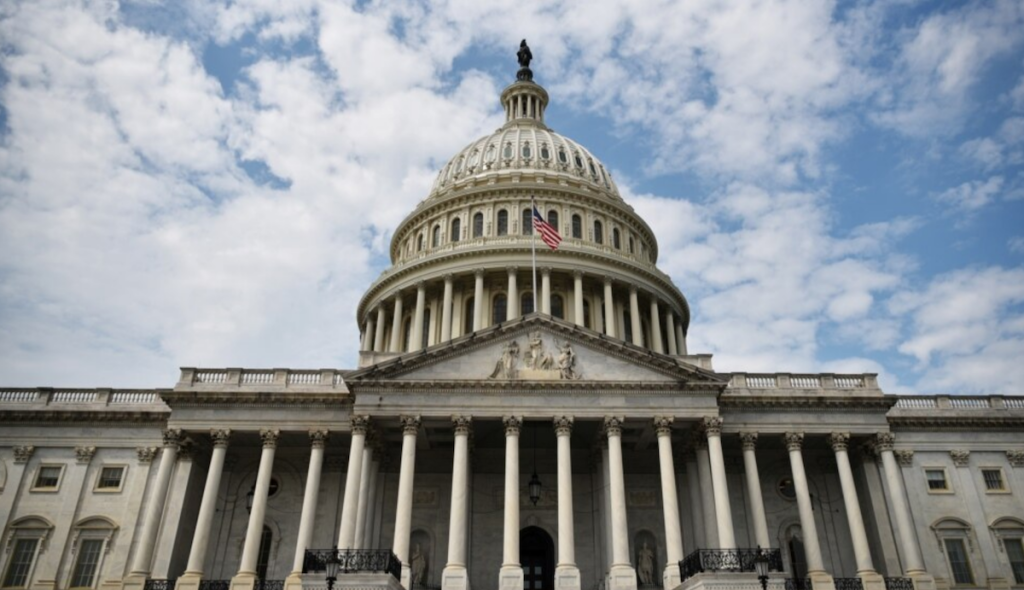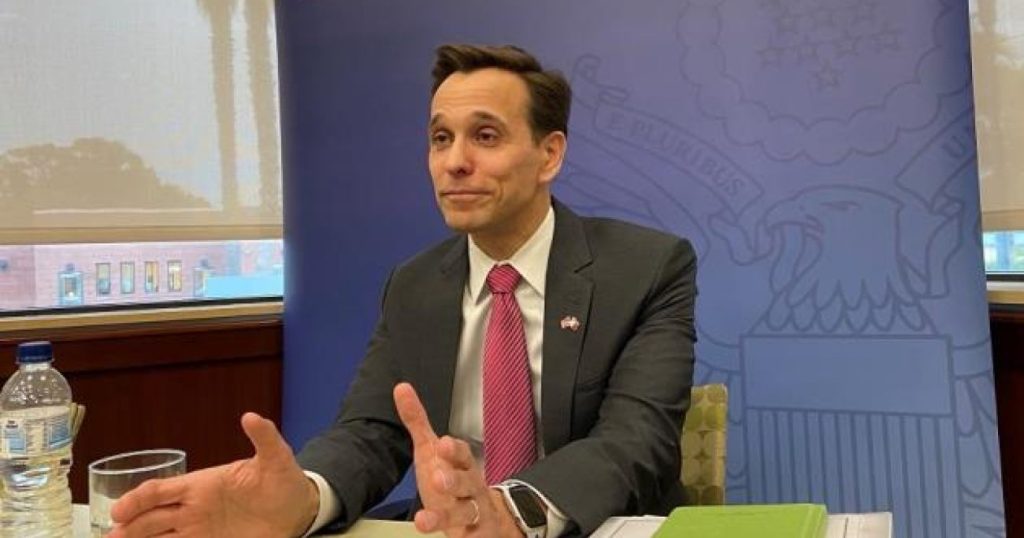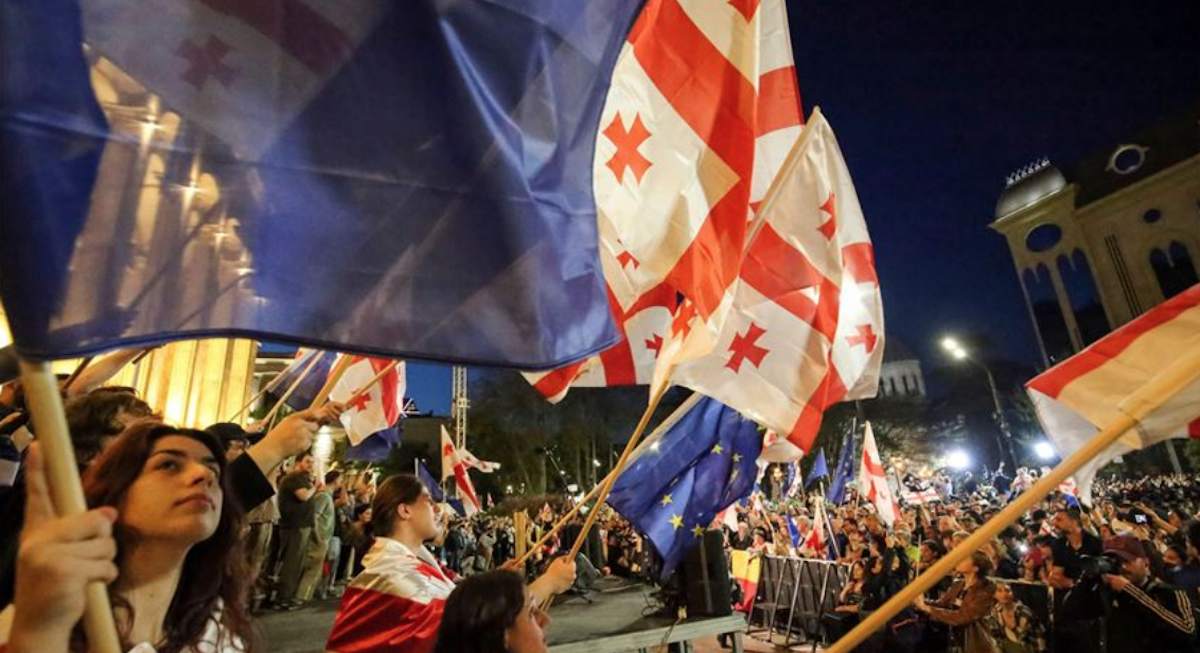"Ruthless dictator, not close partner" — U.S. Congress holds hearings on Georgia and Moldova
New U.S. sanctions on Georgia are coming

The House Foreign Affairs Committee of the U.S. Congress held hearings on July 23 regarding the upcoming 2024 elections and U.S. policy in Georgia and Moldova.
During the hearings, Deputy Secretary of State Joshua Huck discussed the “foreign agents” law enacted in Georgia and addressed the disinformation campaign suggesting this law (officially the law on foreign influence) is similar to the U.S. Foreign Agents Registration Act (FARA).
Huck began his remarks by speaking about U.S.-Georgia relations, emphasizing that support for this relationship has never been more critical. Huck expressed hope that the ruling party “Georgian Dream” would reconsider its actions and steer the country back onto a democratic path.
Despite Georgia’s constitutional commitment to Euro-Atlantic integration, its government has deviated from this course, stated committee member Congressman Bill Keating during the hearings. He is one of the authors of the “MEGOBARI Act” (Mobilizing and Enhancing Georgia’s Options for Building Accountability, Resilience, and Independence) in Congress.
Threats from the informal leader of the ruling party Georgian Dream [and the country’s shadow ruler, oligarch Bidzina Ivanishvili] are more fitting for a ruthless dictator than a close U.S. partner, said Republican Congressman Tom Kean. “I am eager to see how the people of Georgia respond to the actions by the government during the critical parliamentary elections in October,” said Tom Kean.
What lawmakers and the Assistant Secretary of State said

Joshua Hak, Deputy Secretary of State:
“The Georgian government is radically altering the country’s democratic trajectory”
“First, FARA differentiates between non-profit and commercial organizations, while Georgia’s “foreign agent” law targets only civil society and media. This is the first issue.
Second, U.S. legislation does not apply to media if the company’s leadership is American. Georgian legislation makes no such distinction. Instead, media are direct targets, significantly impacting independent press.
Third, FARA bases actions on whether an organization is under direct foreign control, whereas Georgian law simply notes the source of foreign funding.
The Georgian government is radically altering the country’s democratic trajectory and jeopardizing its Euro-Atlantic aspirations and relations with the U.S.
Georgian authorities have enacted undemocratic laws, demonized civil society, and engaged in disinformation and rhetorical attacks against American and European partners who have supported Georgia for decades.
A symbol of this anti-democratic shift is the foreign influence law adopted by Georgia’s ruling party on May 28. This law, which mirrors Russia’s, aims to silence critical voices, malign independent NGO activists and journalists, and stifle Georgia’s strong civil society.
During our visit to Tbilisi in May, Deputy Secretary Jim O’Brien and I highlighted the Georgian government’s undemocratic actions and warned of consequences if the ruling party did not change course.
Similarly, Deputy Secretaries Uzra Zeya and John Bass reiterated to Georgian officials that the government’s actions are inconsistent with the public’s desire to join the European Union and NATO.
On June 6, we took steps to impose visa restrictions on Georgian ruling party officials, parliamentarians, and law enforcement personnel responsible for or involved in undermining Georgian democracy.
These actions build on our previous measures, such as visa restrictions against corrupt judges and financial sanctions against former Prosecutor General Otar Partskhaladze, a Georgian-Russian oligarch linked to the Russian FSB.
We are working with our colleagues on additional steps, including potential reallocation or suspension of aid programs and cessation of political engagement. Recently, the Department of Defense announced the indefinite postponement of military exercises in Georgia.
We hope that Georgian leaders will reconsider their actions and return to Georgia’s long-term Euro-Atlantic aspirations.
We remain steadfast in our support for Georgian civil society in the face of government pressure, threats, and physical attacks. We engage regularly with civil society representatives and actively support their efforts to ensure free and fair elections in October.
The Georgian people must decide their country’s future, so we must remain vigilant against threats from Russia, which continues to occupy 20 percent of Georgian territory.
Finally, I want to reaffirm that despite these challenging times, the U.S. commitment to the Georgian people is firm and unwavering. Americans and Georgians share a special friendship based on common values: a love of freedom and independence. We will continue to support the development of a strong, secure, and democratic Georgia.”
Bill Keating, Democratic Congressman: “Your actions will not go unanswered”
“In recent months, Georgian Dream has pushed through a Kremlin-inspired ‘foreign agents’ law aimed at attacking civil society and freedom of expression in the country.
I have two messages for Georgian Dream and the Georgian people.
First, we believe that your actions will not go unanswered. In May, the State Department approved an initial package of restrictions for officials and their families.
Second, Congress and the administration are well aware of the Georgian people’s desire to join the European Union and NATO, and we will continue to support you in this pursuit.
I anticipate that the restrictive measures against representatives of ‘Georgian Dream’ and their families will gradually expand.
For many years, the Georgian people have clearly expressed their commitment to the country’s Euro-Atlantic path and have hoped that this choice will be reaffirmed by the Georgian people at the ballot box.”
Republican Congressman Tom Kean: “The threats from the leader of ‘Georgian Dream’ against political opponents are perfectly suited to a ruthless dictator”
“Many Georgian citizens bravely and peacefully took to the streets to protest their government’s harmful actions. Unfortunately, they were met with violent raids and arrests.
In the midst of ongoing debates over the ‘foreign agents’ bill, the leader of ‘Georgian Dream’ threatened ‘harsh revenge’ against his political opponents, a sentiment more fitting of a ruthless dictator than a close ally of the U.S.
I look forward to seeing how the Georgian people will respond to such actions by their government during the critical parliamentary elections in October.
Finally, I want to note that this October offers a glimmer of hope for Georgia and Moldova. I believe the overwhelming majority of citizens in both countries hope for closer ties with the U.S. and do not wish to subject their nations to the Kremlin’s desires.”





















